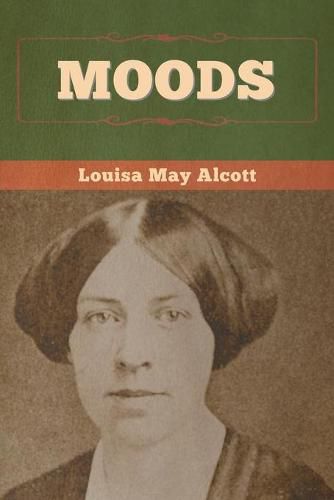Readings Newsletter
Become a Readings Member to make your shopping experience even easier.
Sign in or sign up for free!
You’re not far away from qualifying for FREE standard shipping within Australia
You’ve qualified for FREE standard shipping within Australia
The cart is loading…






This title is printed to order. This book may have been self-published. If so, we cannot guarantee the quality of the content. In the main most books will have gone through the editing process however some may not. We therefore suggest that you be aware of this before ordering this book. If in doubt check either the author or publisher’s details as we are unable to accept any returns unless they are faulty. Please contact us if you have any questions.
Like her later works for children, Alcott’s first novel is well and imaginatively written, highly moralistic, unlikely, and moving. –The Antioch Review Moods, Louisa May Alcott’s first novel, was published in 1864, four years before the best-selling Little Women. The novel unconventionally presents a little woman, a true-hearted abolitionist spinster, and a fallen Cuban beauty, their lives intersecting in Alcott’s first major depiction of the woman problem. Sylvia Yule, the heroine of Moods, is a passionate tomboy who yearns for adventure. The novel opens as she embarks on a river camping trip with her brother and his two friends, both of whom fall in love with her. These rival suitors, close friends, are modeled on Ralph Waldo Emerson and Henry David Thoreau. Aroused, but still moody and inexperienced, Sylvia marries the wrong man. In the rest of the novel, Alcott attempts to resolve the dilemma she has created and leaves her readers asking whether, in fact, there is a place for a woman such as Sylvia in a man’s world. In 1882, eighteen years after the original publication, Alcott revised and republished the novel. Her own literary success and the changes she helped forge in women’s lives now allowed her heroine to meet, as Alcott said, a wiser if less romantic fate than in the former edition. This volume contains the complete text of the 1864 Moods and Alcott’s revisions for the 1882 version, along with explanatory notes by the editor. Sarah Elbert is a professor of history at the State University of New York, Binghamton. She is the author of A Hunger for Home: Louisa May Alcott’s Place in American Culture (Rutgers University Press, 1987).
$9.00 standard shipping within Australia
FREE standard shipping within Australia for orders over $100.00
Express & International shipping calculated at checkout
This title is printed to order. This book may have been self-published. If so, we cannot guarantee the quality of the content. In the main most books will have gone through the editing process however some may not. We therefore suggest that you be aware of this before ordering this book. If in doubt check either the author or publisher’s details as we are unable to accept any returns unless they are faulty. Please contact us if you have any questions.
Like her later works for children, Alcott’s first novel is well and imaginatively written, highly moralistic, unlikely, and moving. –The Antioch Review Moods, Louisa May Alcott’s first novel, was published in 1864, four years before the best-selling Little Women. The novel unconventionally presents a little woman, a true-hearted abolitionist spinster, and a fallen Cuban beauty, their lives intersecting in Alcott’s first major depiction of the woman problem. Sylvia Yule, the heroine of Moods, is a passionate tomboy who yearns for adventure. The novel opens as she embarks on a river camping trip with her brother and his two friends, both of whom fall in love with her. These rival suitors, close friends, are modeled on Ralph Waldo Emerson and Henry David Thoreau. Aroused, but still moody and inexperienced, Sylvia marries the wrong man. In the rest of the novel, Alcott attempts to resolve the dilemma she has created and leaves her readers asking whether, in fact, there is a place for a woman such as Sylvia in a man’s world. In 1882, eighteen years after the original publication, Alcott revised and republished the novel. Her own literary success and the changes she helped forge in women’s lives now allowed her heroine to meet, as Alcott said, a wiser if less romantic fate than in the former edition. This volume contains the complete text of the 1864 Moods and Alcott’s revisions for the 1882 version, along with explanatory notes by the editor. Sarah Elbert is a professor of history at the State University of New York, Binghamton. She is the author of A Hunger for Home: Louisa May Alcott’s Place in American Culture (Rutgers University Press, 1987).